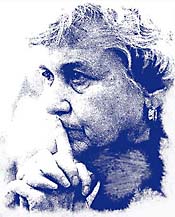Leadership, by the book: the Army Manual book July 10, 2017
Posted by mariemanthey in Leadership, Professional Practice, Values.Tags: Decision-Making, Empathy, Florence Nightingale, Health Care System, Mindfulness, Nurse Managers, Trust
trackback
Re: U.S. Army's Army Field Manual 6_22 on Leader Development i.t.o. psychological & psychiatric criteria for leadership.
This content is written by Prudence L. Gourguechon, widely known national expert on psychoanalysis for the fields of business, law, politics and marketing.
“Despite the thousands of articles and books written on leadership, primarily in the business arena, I have found only one source where the capacities necessary for strategic leadership are clearly and comprehensively laid out: the U.S. Army’s “Field Manual 6-22 Leader Development.”
“The Army’s field manual on leadership is an extraordinarily sophisticated document, founded in sound psychological research and psychiatric theory, as well as military practice. It articulates the core faculties that officers, including commanders, need in order to fulfill their jobs. From the manual’s 135 dense pages, I have distilled five crucial qualities:
Trust
“According to the Army, trust is fundamental to the functioning of a team or alliance in any setting: “Leaders shape the ethical climate of their organization while developing the trust and relationships that enable proper leadership.” A leader who is deficient in the capacity for trust makes little effort to support others, may be isolated and aloof, may be apathetic about discrimination, allows distrustful behaviors to persist among team members, makes unrealistic promises and focuses on self-promotion.
Discipline and self-control
“The manual requires that a leader demonstrate control over his behavior and align his behavior with core Army values: “Loyalty, duty, respect, selfless service, honor, integrity, and personal courage.” The disciplined leader does not have emotional outbursts or act impulsively, and he maintains composure in stressful or adverse situations. Without discipline and self-control, a leader may not be able to resist temptation, to stay focused despite distractions, to avoid impulsive action or to think before jumping to a conclusion. The leader who fails to demonstrate discipline reacts “viscerally or angrily when receiving bad news or conflicting information,” and he “allows personal emotions to drive decisions or guide responses to emotionally charged situations.”
“In psychiatry, we talk about “filters” — neurologic braking systems that enable us to appropriately inhibit our speech and actions even when disturbing thoughts or powerful emotions are present. Discipline and self-control require that an individual has a robust working filter, so that he doesn’t say or do everything that comes to mind.
Judgment and critical thinking
“These are complex, high-level mental functions that include the abilities to discriminate, assess, plan, decide, anticipate, prioritize and compare. A leader with the capacity for critical thinking “seeks to obtain the most thorough and accurate understanding possible,” the manual says, and he anticipates “first, second and third consequences of multiple courses of action.” A leader deficient in judgment and strategic thinking demonstrates rigid and inflexible thinking.
Self-awareness
“Self-awareness requires the capacity to reflect and an interest in doing so. “Self-aware leaders know themselves, including their traits, feelings, and behaviors,” the manual says. “They employ self-understanding and recognize their effect on others.” When a leader lacks self-awareness, the manual notes, he “unfairly blames subordinates when failures are experienced” and “rejects or lacks interest in feedback.”
Empathy
“Perhaps surprisingly, the field manual repeatedly stresses the importance of empathy as an essential attribute for Army leadership. A good leader “demonstrates an understanding of another person’s point of view” and “identifies with others’ feelings and emotions.” The manual’s description of inadequacy in this area: “Shows a lack of concern for others’ emotional distress” and “displays an inability to take another’s perspective.””
===========================
From an intraprofessional leadership perspective, this is a universal summary of essential leadership skills from a valid source. Going back to Florence Nightingale, great leaders when matched to this set of criteria have great capacity to be powerful leaders who truly make a difference. Hospital origins were deeply linked to the military mindset of regimentation, discipline, following the chain of command, and maintaining discipline. Sometimes in ways that de-humanized patient care.
This value-based list of leadership skills represents an exciting awareness important values that can greatly improve performance and promote better engagement.
My own learning during the early development of Primary Nursing included an invaluable gift from ‘military literature’. I don’t remember the exact document or book, but I know the conceptual paradigm of Responsibility Authority and Accountability came directly from a description of a military ‘chain of command’ writing. We were not using words like that in nursing during PN’s early development.
Every sector has a contribution to make to the collective well-being!
=================
References:
http://www.latimes.com/opinion/op-ed/la-oe-gourguechon-25th-amendment-leadership-mental-capacities-checklist-20170616-story.html

I couldn’t agree more Marie. When an organizations leadership structure is built upon a foundation lacking trust, it is truly destabilizes all involved. Without trust there is no integrity. Without integrity, the very fibers holding the organization together weakens. It is the leaders responsibility to model strength and integrity. Without an impeccable commitment to building relationships on the foundation of trust, we loose our power to cast positive ripples moving outward into our community, and isn’t that what health”care” is all about? Thank you Marie for being the thought leader who facilitated this and other important conversations in our noble profession of nursing!
Your values shines through this comment Katherine. You really get it. You are a true leader